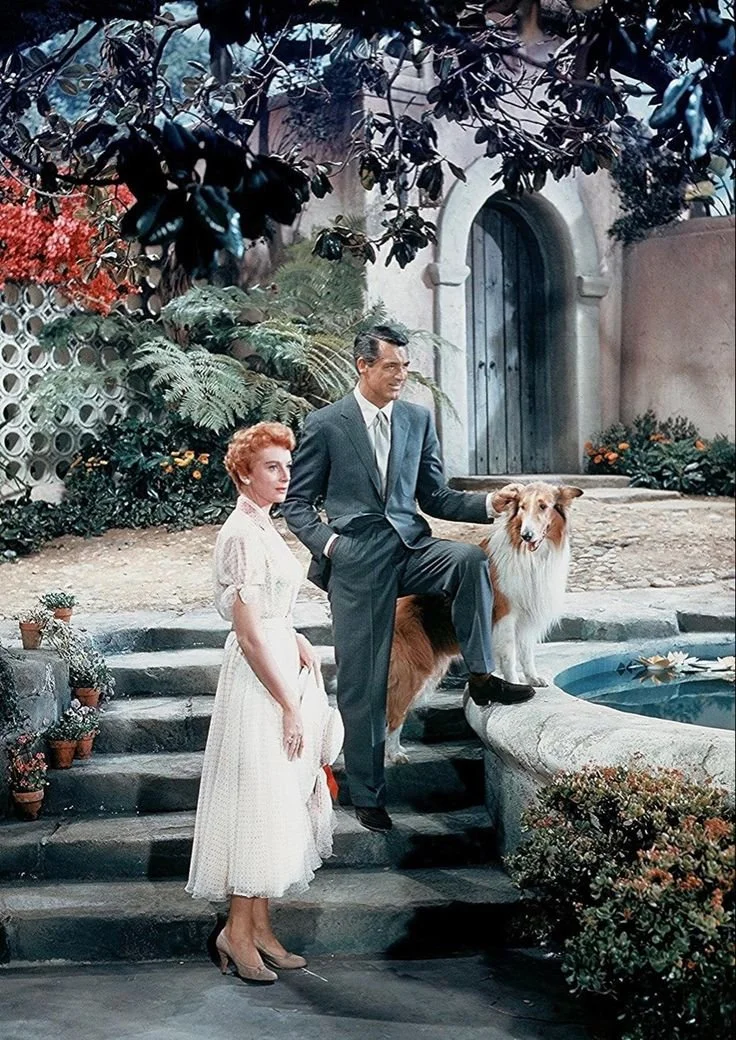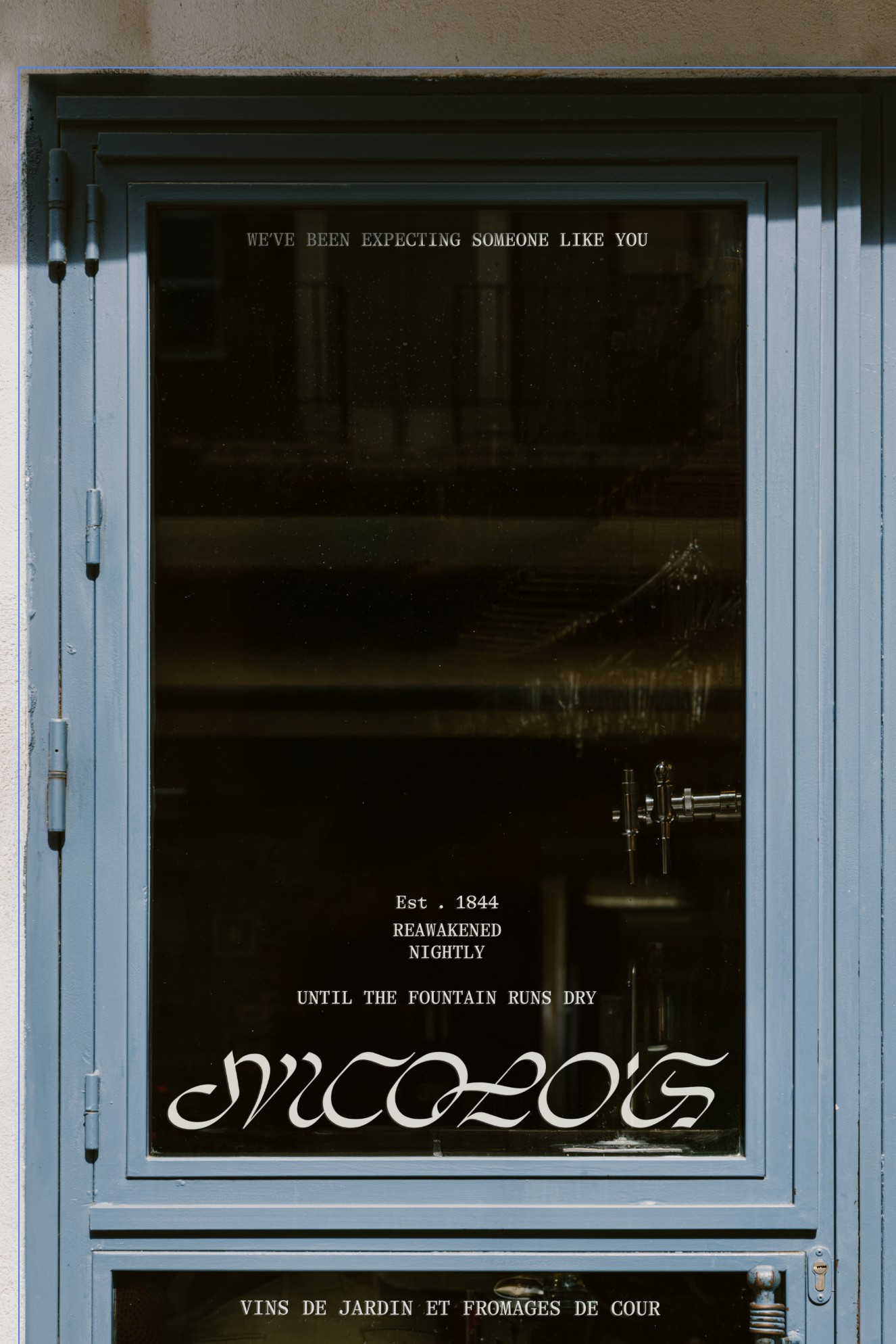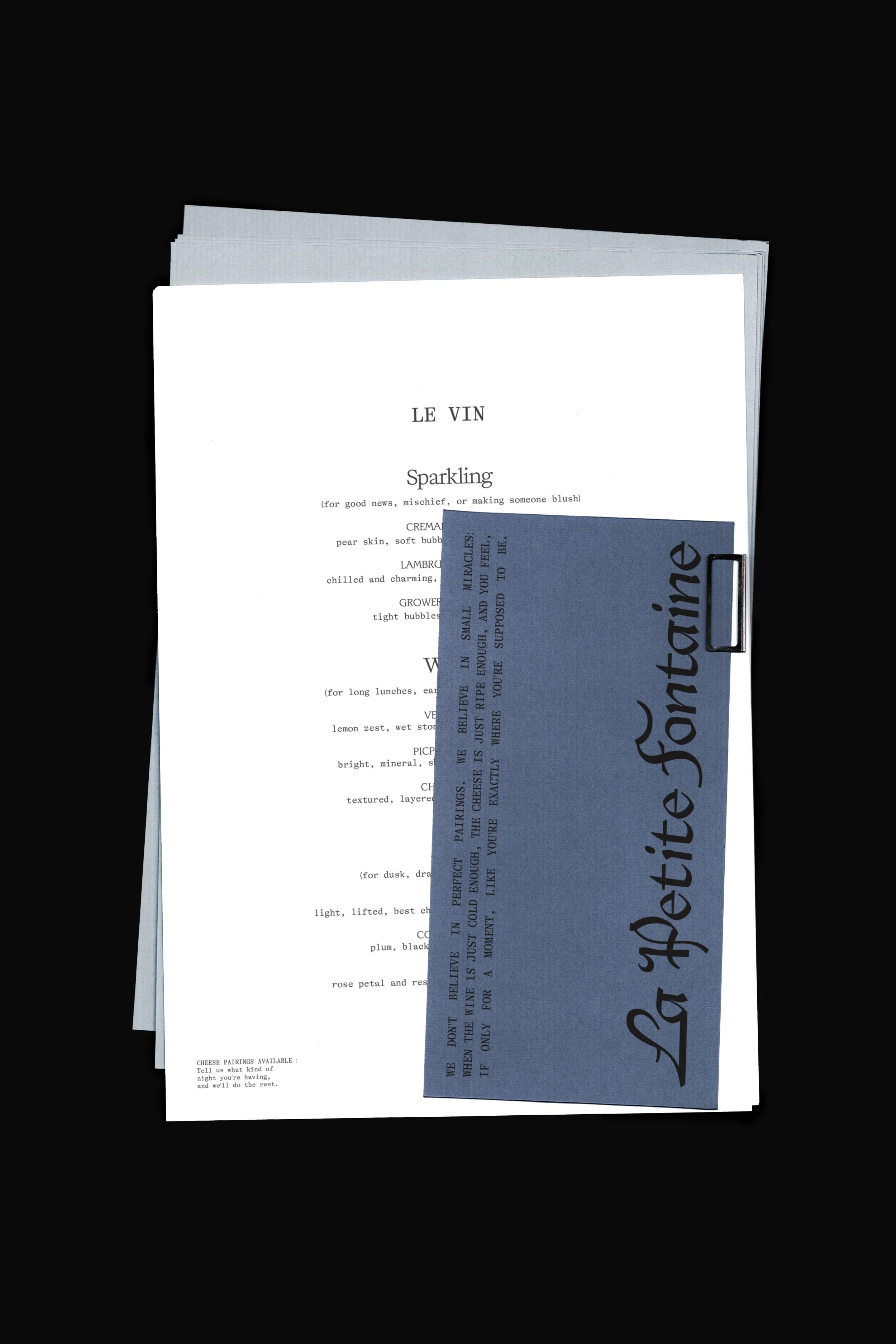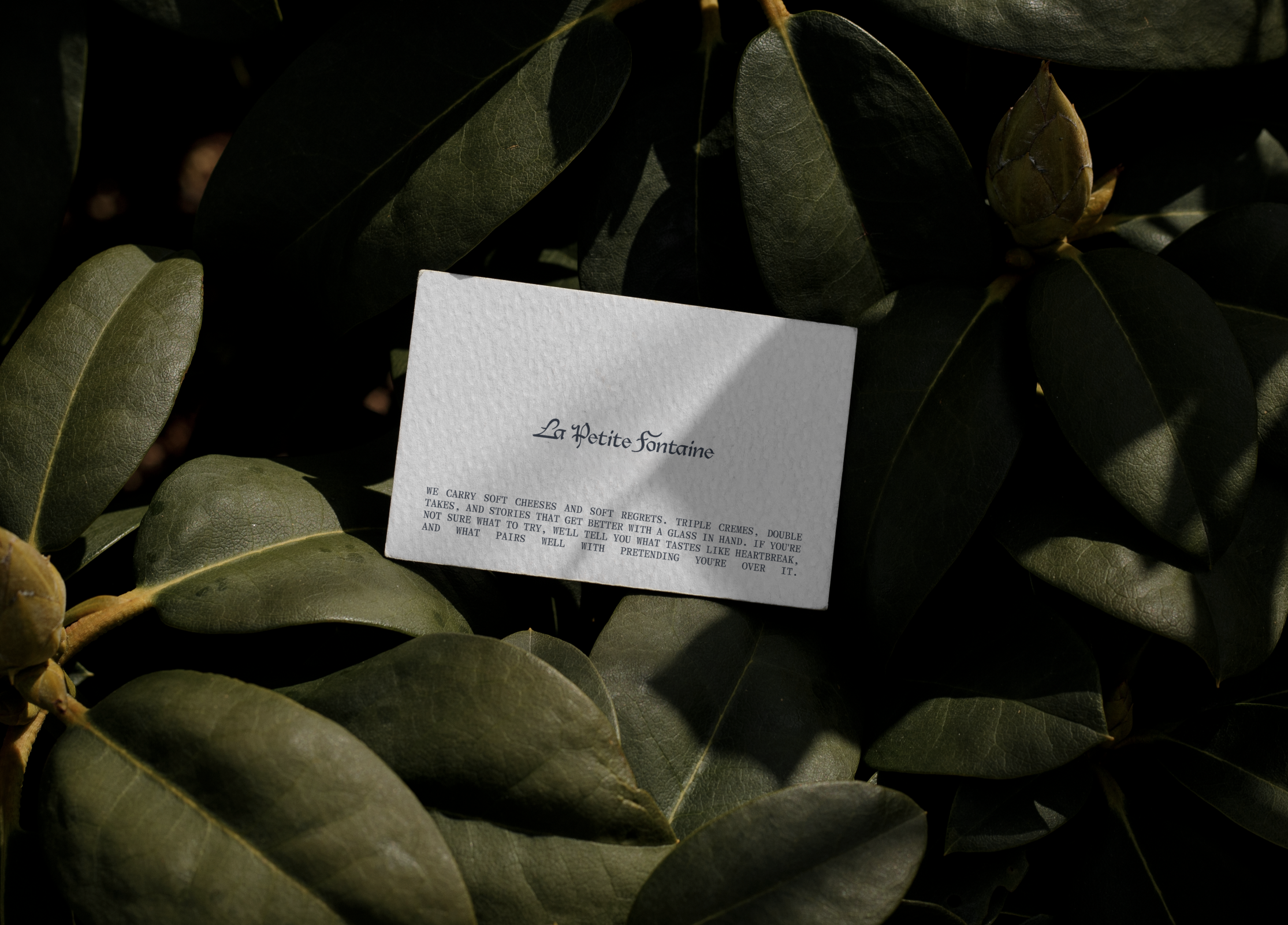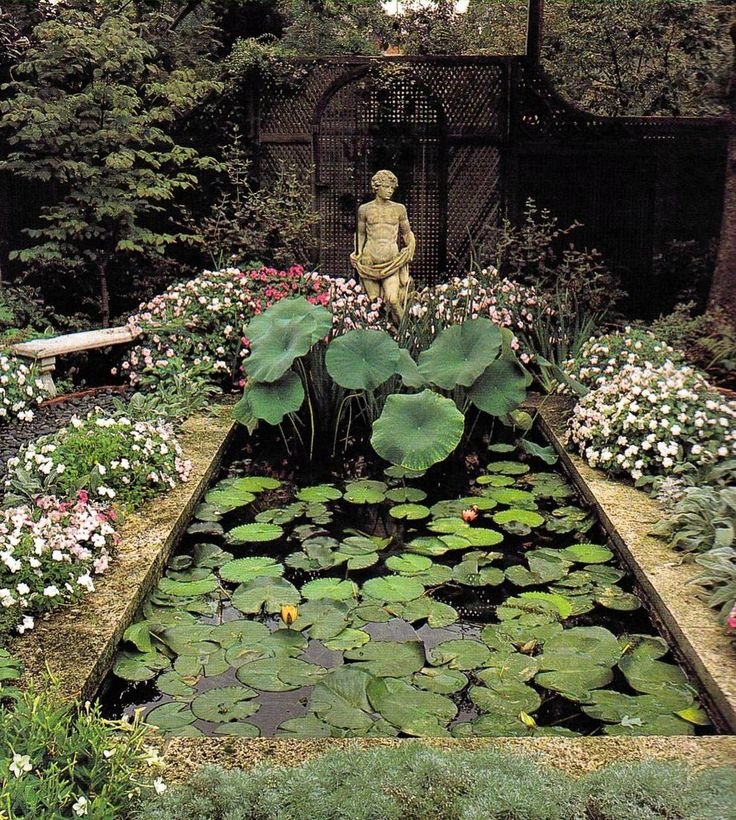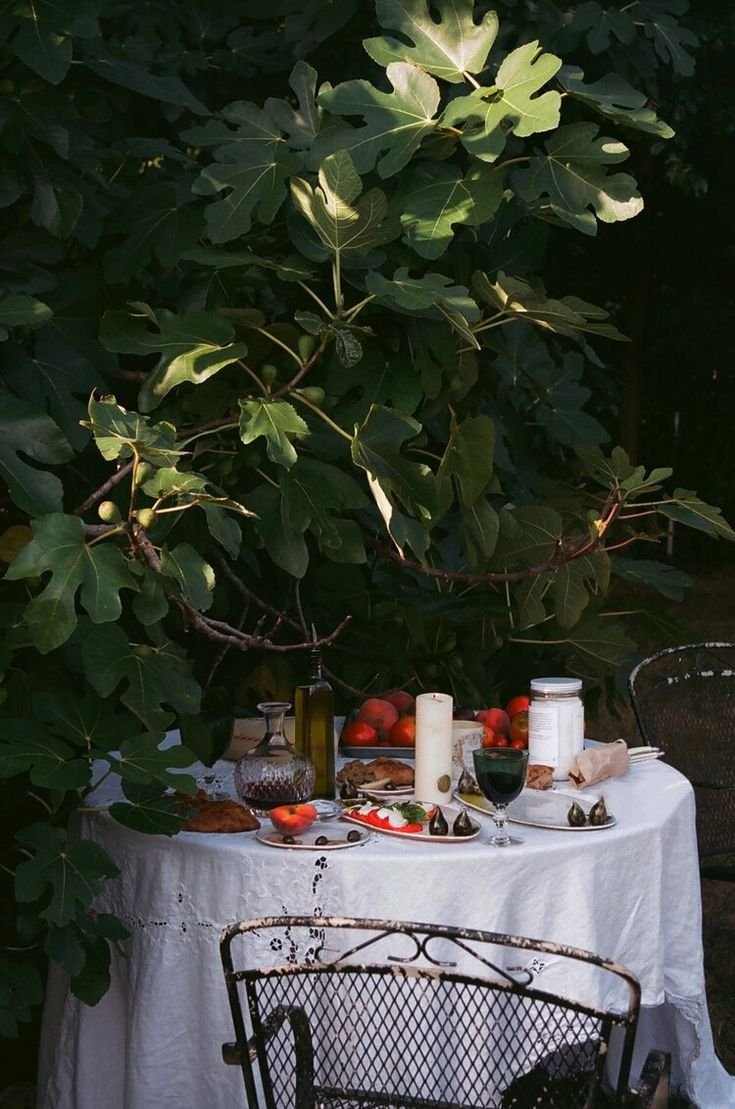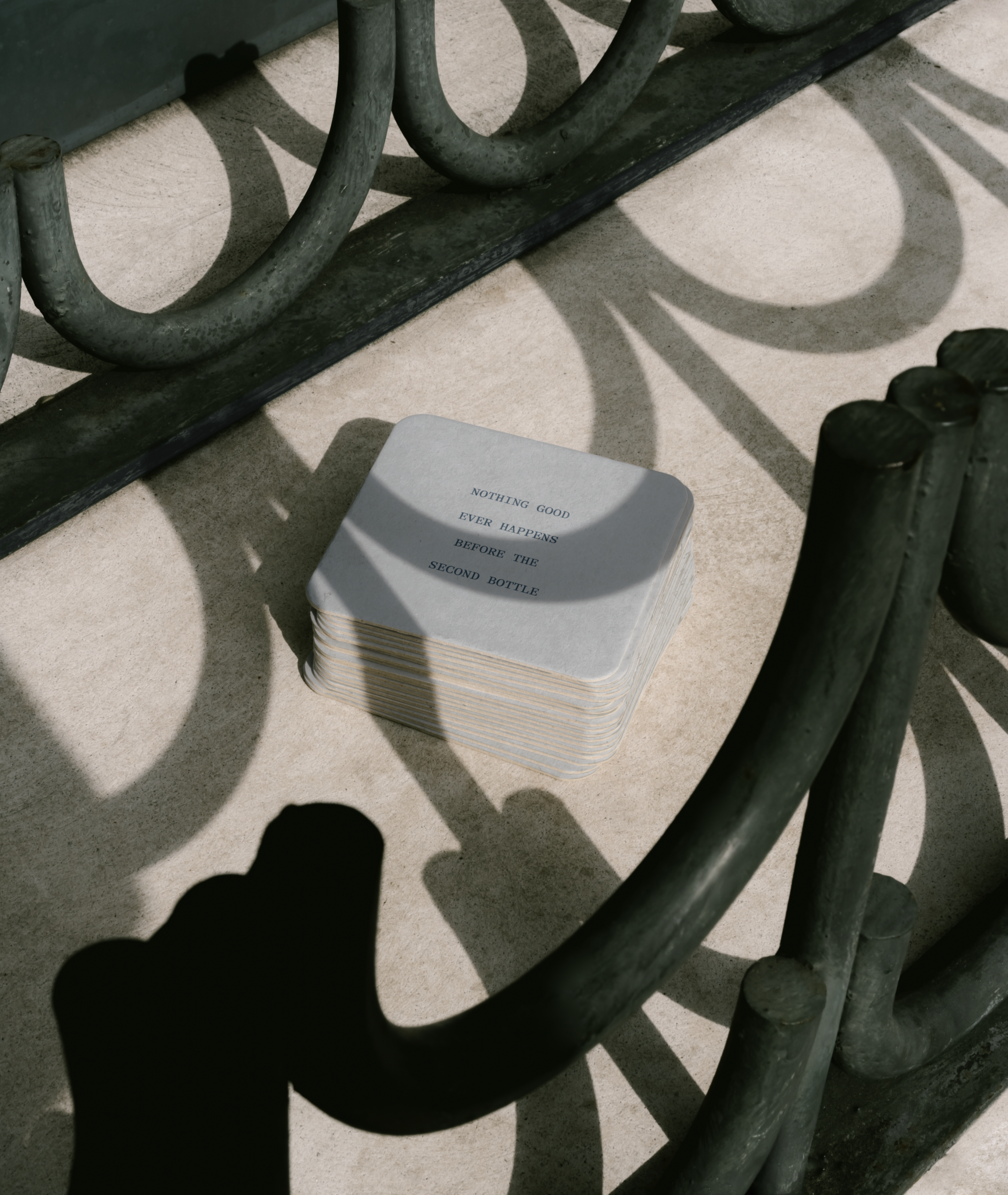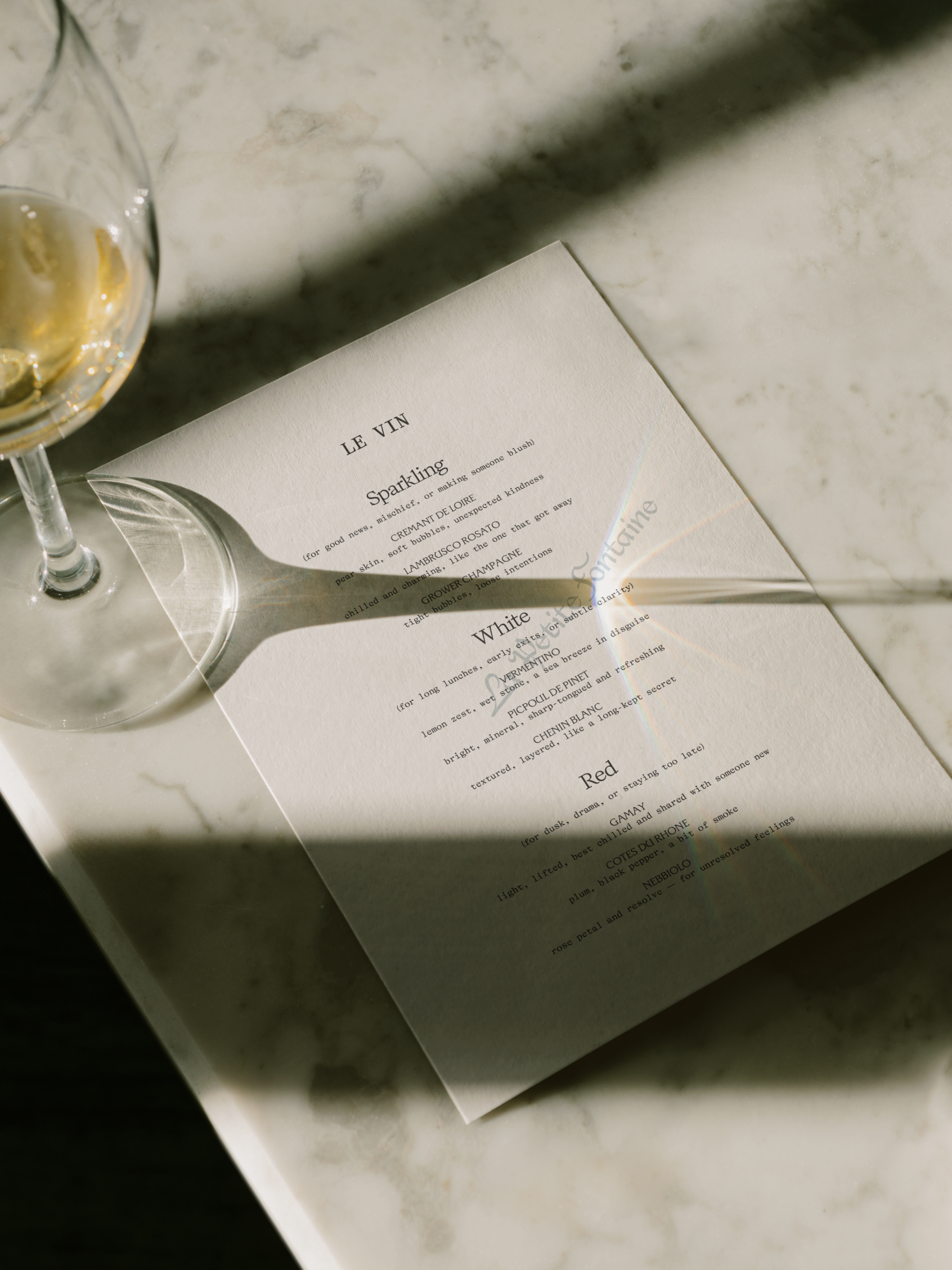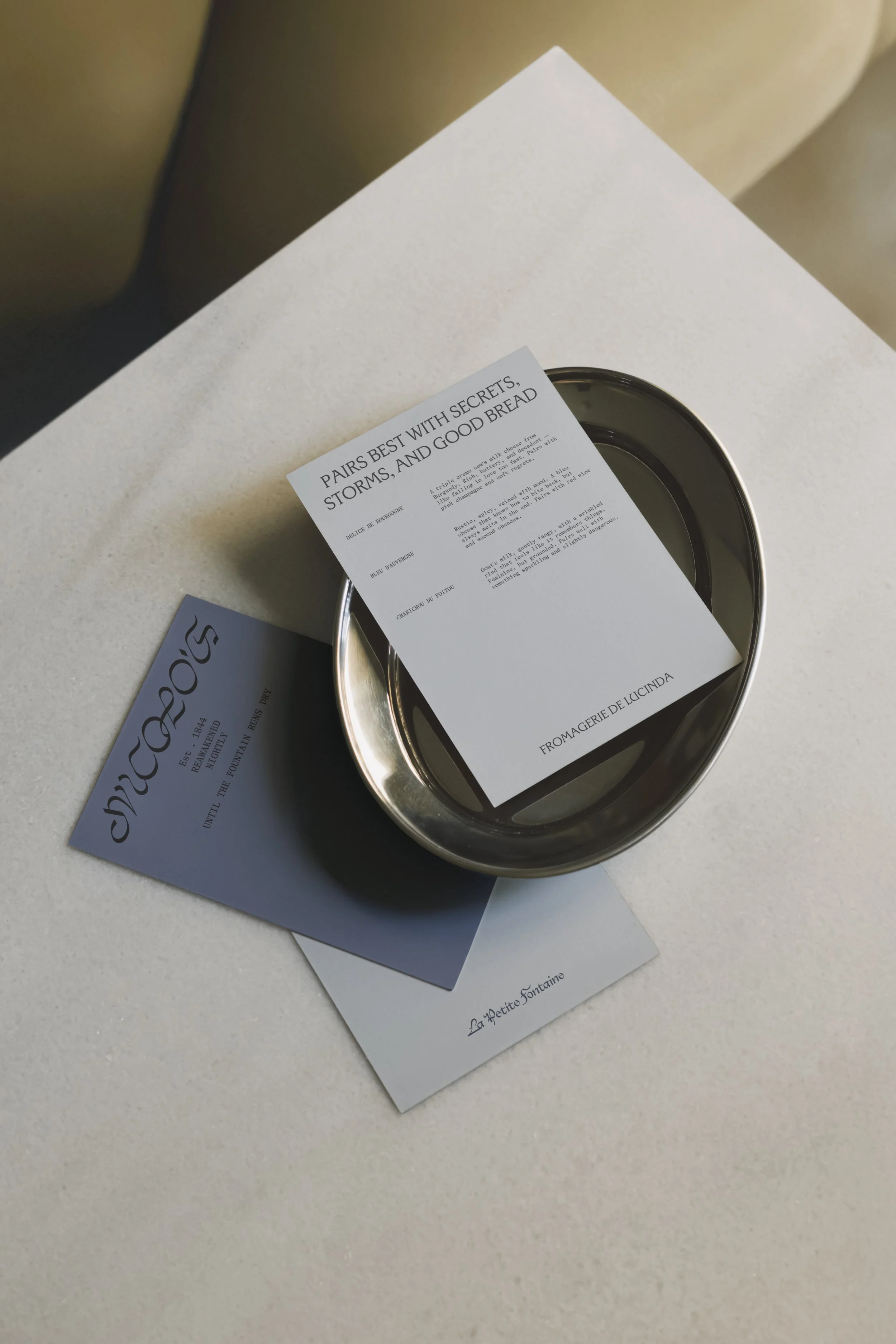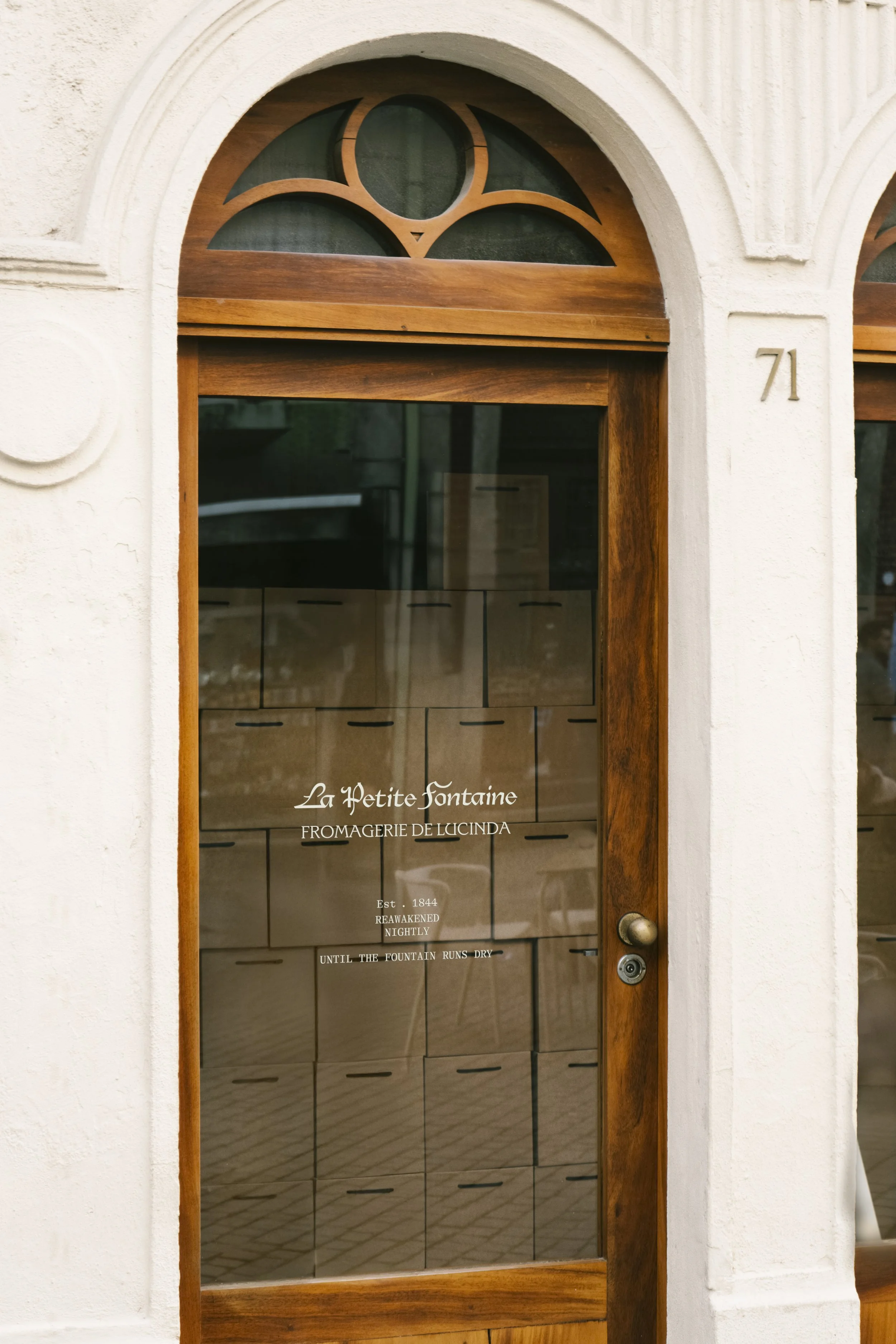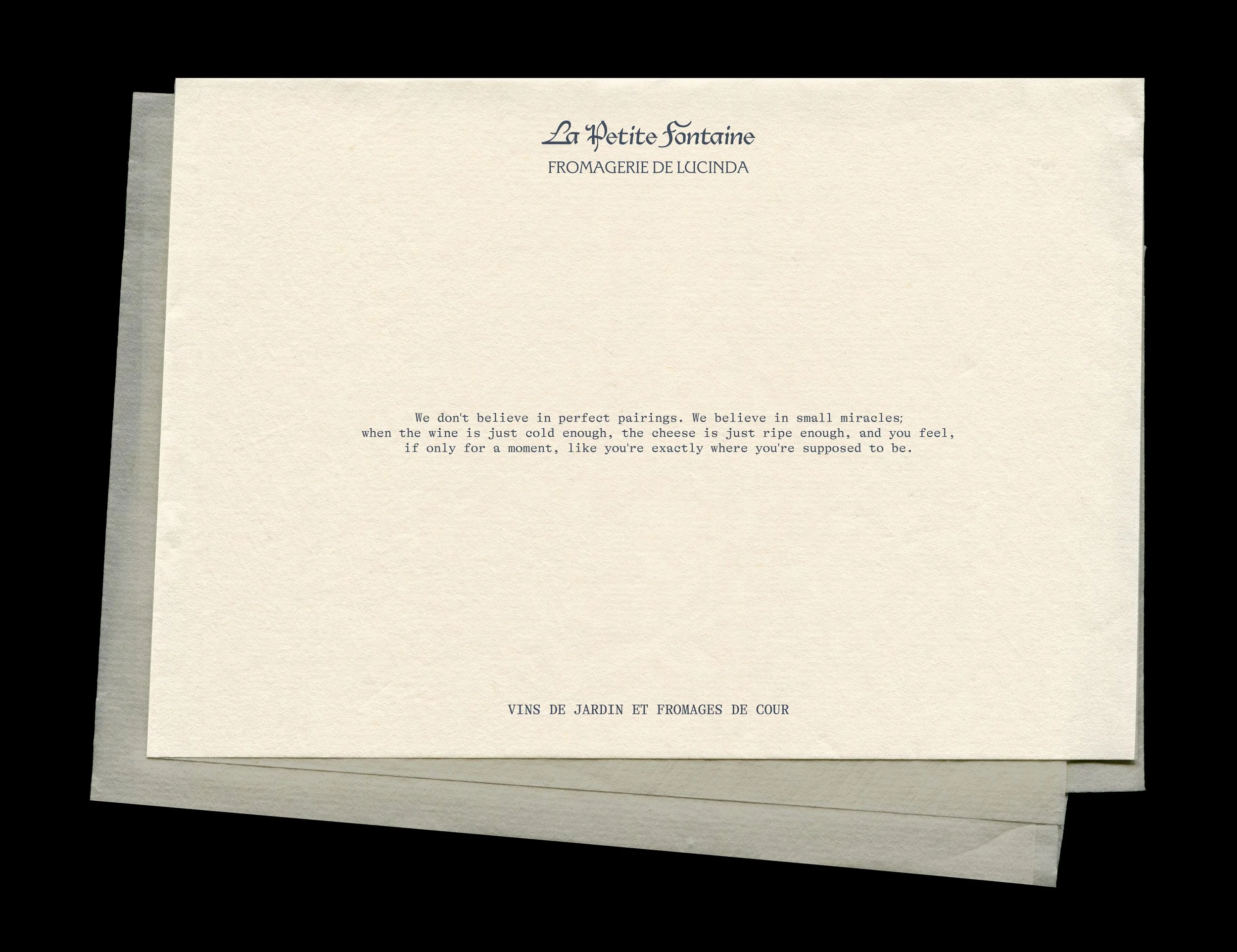NICOLO
Nicolò
908 MERIDIAN STREET, CLEVELAND PARK - NASHVILLE, TENNESSEE
This is the second chapter in what I’ve come to call the Abandoned Building Series - a creative prompt inspired by Olivia Herrick:
What if we imagined possibility into places left behind?
For me, it began with a scene. You know, the one in An Affair to Remember, where Nickie Ferrante takes Terry to his Janou’s apartment and courtyard in Villefranche-sur-Mer. It’s romantic, but not precious - a place shaped by time and affection, not design.
“What is it about this place? There is something about it that makes you want to whisper. It’s so peaceful here. It’s like another world.“
It felt like the perfect muse for the next Abandoned Building project: the McGavock House in East Nashville’s Cleveland Park. Built in the 1840s and once called Fountain Blue, the home carries a quiet thread of French influence - a limestone foundation, natural light that lands just right, and imported wallpaper brought over in 1844 by Lucinda’s husband. A nod to Fontainebleau. Lucinda McGavock became more than a name on the deed. She became the thread I followed.
Janou’s apartment is Lucinda’s in another lifetime.
One lived by the sea, the other by candlelight.
Both hosted heartbreaks, impromptu dinners, and long silences that didn’t need filling.
The Concept
A courtyard bistro, a wine shop called La Petite Fontaine, and a cheese counter known as Fromagerie de Lucinda - all wrapped in the hush of old limestone, vines, and low light.
It’s where long afternoons slip into evening without permission.
Where strangers become memories.
And where every glass, every glance, feels like a plot twist waiting to happen.
Guests enter through wrought iron gates into a courtyard where café tables nestle beneath the trees. Inside, shelves are lined with bottles from small producers across Provence, Corsica, and coastal Italy. There’s always something chilled and fizzy- especially pink champagne.
One of the original parlors houses the French cheese counter, gleaming with triple crème, blues, and blooming rinds. Toward the back, a small kitchen turns out small plates: socca, panisse, herbed mussels, stone fruit with herbed cream.
You can stay for five minutes or five hours.
You can come alone - or bring someone you shouldn’t.
La Petite Fontaine
Named after the home’s original title, Fountain Blue, La Petite Fontaine is the heart of the house: always flowing, always full. The wine counter at Nicolò isn’t a bar. It’s a confession booth. A mood ring. A soft landing. Come here when you’re unsure. Come here when you already know.
We don’t ask what you’re drinking. We ask how you’re feeling.
The Fontainistes behind the counter are part sommelier, part soft-voiced oracle.
They pour like they’re keeping your secrets.
They’ll hand you something dry and cold when you’re flushed from a kiss.
Something wild and bruised when you miss someone you shouldn’t.
Each bottle is chosen the way you choose a song when no one’s watching - By feel. By ache. By memory.
There’s always a chilled rosé. Always a glass already half-poured. Notes scrawled on a tag: “Tastes like the one who got away.” or “Pairs well with making the first move.” At 4 p.m., Le Premier Verre begins. We open a bottle and pour until it’s gone. No menu listing. No price.
Behind the counter you’ll find tiled marble. A tower of triple-crèmes under glass. A bottle of pink champagne in a silver bucket. A letterbox for confessions unsent.
You don’t have to stay long.
But you might.
Because here—The first glass finds you.
The cheese knows your name.
And the wine remembers who you were (and who you were with) last week.
HOUSE RULES
No checking the time.
No loud goodbyes.
Cheese before reason.
If you fall in love here, you’re not the first -
and you won’t be the last.
We believe in soft voices and slow pours.
We keep secrets until you’re ready to tell them.
We do slow pours, tucked corners, late music.
We do “just one glass” that turns into three.
We do letters you’ll never send.
And cheeses that taste like closure.
At Nicolò, we don’t do reservations.
We do encounters. Mistakes worth repeating.
Moments you swear were written for you.
This place doesn’t ask who you are.
Only how you feel.
Come thirsty. Leave lighter.
And if you fall in love -
just promise you’ll come back.
THINGS I MAY DESIGN LATER:
LOVE LETTERS NEVER SENT : Lettres Perdues: A wooden box on the counter where guests can slip in a note—to someone they miss, someone they love, or a future version of themselves. A note that reads: “Write what you’ll never say.” We’ll use these letters as wrapping paper for cheese to go. A quiet way to let something go—or pass something on.
LUCINDA’S : A speakeasy disguised in shadow and silk. Accessible only to those who know where to knock (or flirt). Lucinda McGavock was the daughter of the original owner. She was known for hosting candlelit salons, painting letters in violet ink, and disappearing without saying goodbye. Or so they say. Now, behind a velvet curtain and an unmarked door - Lucinda’s returns, although some say she never left. Where every drink comes with a story, whether you ask or not.
NAPKINS : “Wipe your mouth. Then say what you mean.”
MATCHBOOKS : “Pairs well with candlelight and plausible deniability.”









